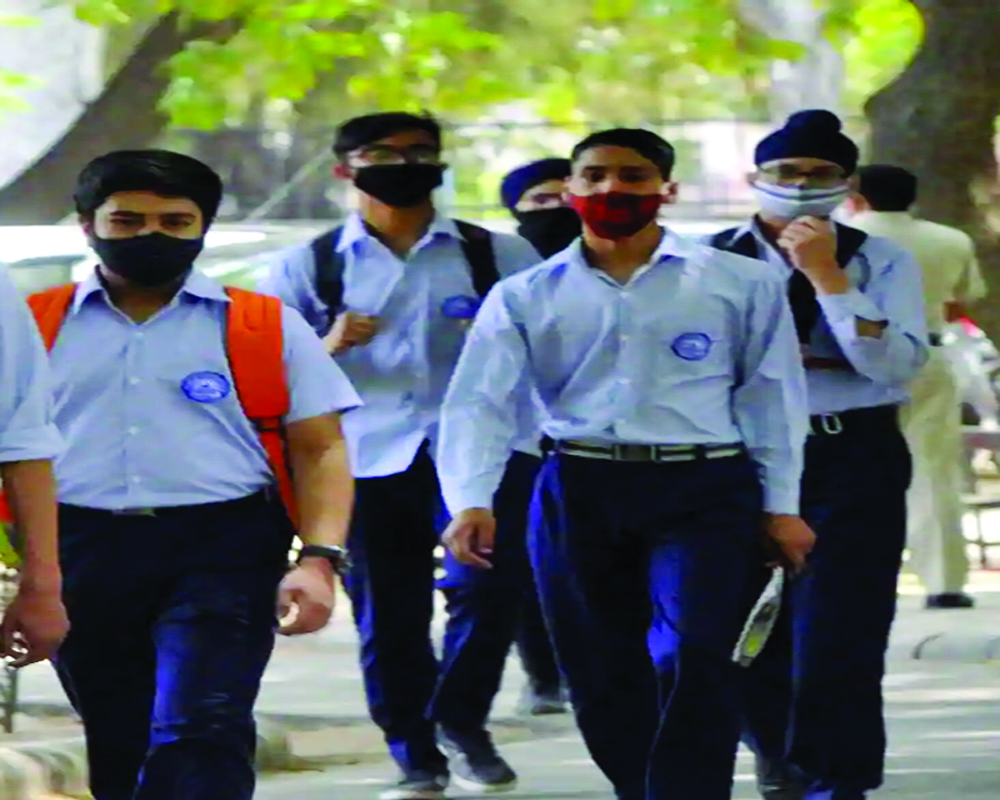SEE Learning emphasises a secular approach to ethics guided by universal traits of compassion and kindness
In the wake of the Covid-19 pandemic and the lockdowns, mental health is a topic of deliberation among the masses and not just psychology professionals. Students’ mental health issues are on the rise - every passing year marked by nervous breakdowns and suicides - and the pandemic has added a significant layer of mental stress that is particularly concerning.
Recently, students underwent a harrowing period of uncertainty over the class XII board examinations while the CBSE mulled alternatives. The final decision - the cancellation of the exams and a new structure for allotting marks — has triggered fresh bouts of anxiety. The students continue to be concerned about their future educational prospects.
Such stress compounds students’ general anxieties around adulthood, adapting to e-learning, the pandemic, and numerous other physical and psychological changes they undergo.
Many of these stressors are just as present in adults but the key difference is when they affect developing children during their formative years, they can have lifelong impacts. Studies show the brain of a child witnesses maximum growth between six and 13 years.
Thus, within pedagogy, there is an increasing movement beyond the cognitive capacities of children and focus on their holistic development so that they are better equipped to navigate the world. The SEE Learning program that focuses on the social, emotional, and ethical literacy of K-12 students is one such approach.
The Social, Emotional and Ethical (SEE) Learning program - developed at Emory University is an articulation of the vision of the Dalai Lama to educate the heart - takes into account evidence presented by the earlier Social and Educational Learning (SEL) community. In fact, Dr. Daniel Goleman, a pioneer in the SEL community, is a key advisor to the SEE Learning program.
Other pioneers in SEL such as Dr.James Heckman and Dr. James Comer realized that though cognitive skills are fundamental, soft skills or life skills are just as significant to the eventual development of children. SEL programs focus on two primary domains: emotional intelligence and social skills (the ability to engage with the external world). SEE Learning expounds upon these concepts of SEL through three critical lenses - introduction of ethical literacy, i.e., compassion with discernment, trauma-informed resiliency approach, and systems thinking perspective. The benefits to the overall social well-being, when societies are driven by such attitudes, are becoming clearer than ever.
About the systems thinking perspective, it is imperative to understand that we live in a global, interconnected and extremely complex society governed by a variety of systems. Therefore, it is not sufficient to merely give children emotional literacy, and the ability to communicate and socialize, as present-day needs make it important to ground them with the tools to be systems thinkers.
This allows students to understand the complex network of systems and the interplay of factors forming the system in any situation, thereby equipping them with greater awareness to make life decisions that benefit not just them but the larger community they are a part of.
The SEE Learning program has other unique differentiators that distinguish it from other pedagogical approaches. The first is an emphasis on cultivating the “skill of attention†since it is a core skill that impacts all aspects of learning. Another differentiating factor is that it recognizes the breadth of experiences, circumstances, and factors that affect the ability of students to reflect, deal with emotions and self-regulate.
The approach also benefits those outside the context of trauma. Every circumstance that human beings find themselves in is ultimately manifested as a combination of safety and fear. Navigating these circumstances is enhanced by a greater understanding of physical nervous systems, regulation of stress through body-based practices, and cultivation of “body literacyâ€. Such practices better equip students to deal with stress regularly.
It is hard to overstate the importance of pedagogical approaches like SEE Learning in current times. It has been a tumultuous time for students as the pandemic has jeopardized the future for many of them, particularly those geared to take the CBSE/ISC board exams. SEE Learning can chart a clear path to ensure that students have the social and ethical literacy to find solutions that best serve the problems of this volatile world.
(Reshma Piramal is Head Operations (South), SEE Learning India, Max India Foundation. Neha Bhatia is Head Operations (North). The views expressed are personal.)


























